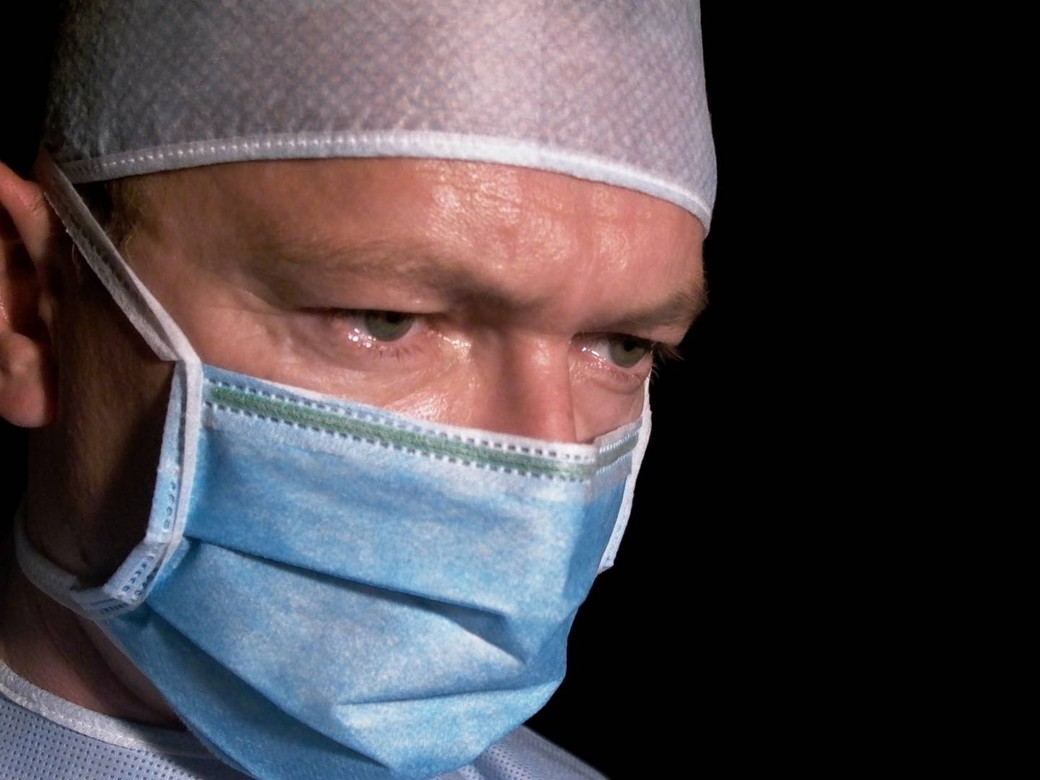
Community Leaders Rally to Support the OICC Approach to Cancer
Spring has finally sprung in Ottawa and with it tulips and daffodils are popping up everywhere… not just the daffodils in your garden but the ones you pin on as a reminder that cancer is all around too. But there are havens of hope, and one such oasis of healing is the Ottawa Integrative Cancer Centre (OICC), the first integrative cancer care and research centre of its kind in Central and Eastern Canada.
The OICC welcomes patients at any stage and those wishing to prevent cancer or its recurrence. The OICC provides whole-person cancer care alongside conventional treatments to improve the quality of life, and to extend life where possible. The Centre works with patients and their physicians, to provide therapeutic programs that decrease side effects and promote health during and after conventional treatments. Through clinical practice, research and education, the OICC strives to assess and reduce possible causes of cancer while exploring innovative integrative treatment approaches.
The OICC first opened in 2011, and tripled the size of its facility in 2012, in order to meet the needs of an increasing number of cancer patients seeking complementary care. The OICC is led by Dr. Dugald Seely, ND, one of 12 naturopathic doctors in Canada accredited with the designation of Fellow of the American Board of Naturopathic Oncology (FABNO). Seely is also an Affiliate Investigator with the Ottawa Hospital Research Institute. Seely comes from a family of medical pioneers. His father, late Dr. John Seely, was Dean of Medicine at the University of Ottawa, and responsible for establishing the palliative care system in The Ottawa Hospital.
As the number of patients increases at the OICC, so has its profile. In fact, the Centre has been attracting some big name supporters and recently established a Community Advisory Board. It is made up of a range of business and not-for-profit leaders, media and communications professionals, as well as former and current cancer patients. Their goal is to continue to raise awareness of the OICC and its services. Furthermore, as the Centre grows, so do the financial demands. The OICC is a charitable, not-for-profit cancer care and research centre but, in effect, it is also a social enterprise because without government funding it needs to be self-sustaining. Dr. Seely said that “working with the Community Advisory Board as ambassadors of the OICC in the Ottawa community is a key part of our marketing and communications strategy, and we are grateful to have attracted such a high calibre and dedicated team of professionals.”
Local entrepreneurial mogul John Kelly Chairs the new Board and with him comes what Dr. Seely describes as “a wealth of experience and wisdom for growing organizations.”
 Members of the Community Advisory Board are pictured above from left to right:
Members of the Community Advisory Board are pictured above from left to right:
• Sandra Harvey, President of Murphy Business Ottawa
• Jackie King, Senior VP & GM of Hill + Knowlton Strategies
• John Kelly (SEATED LEFT), co- founder of Murphy Business Ottawa
• David Nostbakken, President of N + N • Natasha Fry, Accountant, Paramount Gold and Silver Corp.
• Rabbi Dr. Reuven P. Bulka, Spiritual Leader of Congregation Machzikei Hadas
• Richard Patten, Former MPP • Terry Vida, Partner, ConversArt Consulting Ltd. • Kyle Braatz, CEO of HealthWave
• Stephen Lerner, Principal of Primecorp Commercial Realty Inc.
• Max Keeping (SEATED RIGHT), Retired CJOH-TV News Anchor
• Colleen Kanna, VP of Finance at ExitCertified Corporation
What unites each member of the Board is a commitment to improving the lives of those touched by cancer. And yet, each Board Member has his/ her own reason for being there. For example, for some, it is their own journey with cancer that motivates them, such as Terry Vida and Colleen Kanna (see Ottawa Life January issue for their stories), former MPP Richard Patten and retired CJOH-TV News Anchor Max Keeping.
Keeping says that he “joined the Board to find out more about the care. Dr. Seely’s patients kept telling me how much better they felt combining complementary care with their conventional treatments while I had been just doing my chemo and radiation. I love that what is offered here is complementary support. I’m interested in a better quality of life. Extending my life. And the community needs to know that happens here.”
As for Patten, he says “The reason why I support the Centre is because regular cancer treatment is too narrow in its approach. It can be more effective when supported with complementary care. We should be open to all approaches to treatment.”
Local communications giant David Nostbakken, (Founding Executive Director and Chair of Vision TV, former Director of Communications for the IDRC and Director of Public Education for the Canadian Cancer Society), serves on the Board for precisely one of the key reasons the OICC exists. “I am interested in supporting OICC because it responds to real needs of the whole person diagnosed with cancer, before and during their conventional treatment. It blends naturopathic modalities with those of oncology. Since the majority of cancer patients seek complementary or alternative care, the OICC provides a safe and professional approach. I support OICC because it is needed.”
As for Ottawa commercial real estate mogul Stephen Lerner and his daughter Natasha Fry, they are involved because of the experience their wife/mother had at the Centre. “My wife, Lise Begin, benefited from the vitamin C treatments. They helped her deal with the very aggressive chemo treatments that she had to undertake in the Ottawa Hospital; moreover, she was able to bike up to 9 weeks before she died.” The OICC helped her live life to the fullest right to the end of her battle with cancer.
Jackie King, Senior Vice President and General Manager of Hill+Knowlton Strategies’ Ottawa office, like Nostbakken, admires the work of the OICC and wants to be a part of it. “I think this a critical development in our community. Ottawa has always been a city of innovation and on the leading edge of medical care – the OICC is further proof of that. Not only will it help the people of our community dealing with cancer, it reinforces Ottawa’s leadership in cancer care and treatment. OICC is at its infancy in terms of its potential in this city and I’m just so proud to be part of an amazing team to help it grow.”
Rabbi Dr. Reuven P. Bulka, C.M., is an accomplished author of more than 35 books. He hosts Sunday Night with Rabbi Bulka on CFRA and regularly contributes to Ask the Religion Experts in the Ottawa Citizen. “The battle against cancer is multi-dimensional. OICC brings many dimensions together, and is a significant addition to our community’s anti-cancer arsenal. Through the Community Advisory Board, we hope to mobilize the community in this challenge. We are all in this together, because, in one way or another, we are all impacted by cancer.”
Kyle Braatz is the CEO and co-founder of HealthWave, a tech company focused on helping integrative health professionals improve patient outcomes. He also cycled across Canada to support the fight against cancer in 2008.
“Integrative care, especially for chronic conditions like cancer, is the most effective delivery of care. I have seen it first-hand and believe the entire health-care system needs to leverage a more integrative approach. The OICC offers an impactful solution to bridge conventional and complementary care in a way that truly treats the person and not just the disease. I believe the OICC is pioneering the way health care should be delivered across the board.”
Sandra Harvey, co-founder of Murphy Business Ottawa explains “I was first introduced to naturopathic medicine and complementary care by a dear friend who died of breast cancer. I saw the improvements in her energy and emotional well-being from her naturopathic treatments as well as some other therapies she chose. I learned a lot from the time I spent with her and since have had many opportunities in my own life where naturopathic medicine helped me to treat underlying health issues that I have struggled with.
“The research that the OICC is doing is very exciting to demonstrate the impact of complementary medicine when working alongside conventional medicine. The OICC mission to encourage collaboration between all types of medical practitioners for the overall health and comfort of the patient is why I choose to be a cheerleader of the OICC. There can be no downside to this approach.”
And those are just some of the stories of those involved. As for Board Chair John Kelly, he says what really motivates him is “how the OICC is committed to working alongside, and together with, conventional cancer care professionals and researchers. It is not advocating an alternative approach to cancer treatment. Rather, a collaborative and innovative approach, that brings the best of both complementary and conventional care together, to provide patients with enhanced quality of life, reduced side effects and, in some cases, extended life. Through integrative oncology the OICC is filling a gap within the cancer care system. When I hear patients’ stories, I see the tremendous impact the Centre is having on those living with cancer. I am inspired to help grow the Centre, to ensure anyone who faces cancer has access to this complementary care.”
With John at the helm of the Community Advisory Board, success is a sure thing. With 44 years of entrepreneurial and executive experience in the technology sector, he brings the experience and expertise needed for the role. John is co-founder of Murphy Business Ottawa and also co-owner of Comfort Keepers, a home care business. He is the former CEO of JetForm Corporation, and founded several businesses, including and among others SHL Systemhouse and NABU Network Corporation. He is the former chair of the United Way Ottawa Campaign and former honorary chair of the Canadian Cancer Society’s Relay for Life. John has received many honours and awards. Most recently, he was awarded the Ottawa Lifetime Achievement Award (2013).
The care that OICC patients receive is backed with scientific research to support every step. The OICC takes an evidence and scientifically-based approach to everything it does, backed by its scientific advisory board. The team comprises a patient advocate and conventional cancer practitioners such as an oncologist, radiologist, surgeon, ethicist, psychosocial worker, and pharmacist. It’s an impressive list of researchers and medical professionals including:
• Shailendra Verma, MD, FRCPC, FACP (Chair) Medical Oncologist, The Ottawa Hospital Cancer Centre
• Jean M. Seely, MD, FRCPC Head of Breast Imaging, The Ottawa Hospital, Department of Diagnostic Imaging
• Dean A. Fergusson, BA, MHA, PhD Senior Scientist and Director of Clinical Epidemiology Program, Ottawa Hospital Research Institute
• Lise Paquet, PhD Professor of Psychology at Carleton University, and Affiliate Investigator with Cancer Therapeutics Unit of the Ottawa Hospital Research Institute
• Andrew J.E. Seely, MD, PhD, FRCSC Associate Professor of Surgery at the Ottawa Hospital Divisions of Thoracic Surgery & Critical Care Medicine at the University of Ottawa, and Associate Scientist, Ottawa Hospital Research Institute
• Salmaan Kanji, BSc.Pharm, Pharm.D. Critical Care Clinical Pharmacy Specialist at the Ottawa Hospital, and Associate Scientist, Ottawa Health Research Institute
• Burleigh-Trevor Deutsch Retired Director, Ethics Office, at the Canadian Institutes of Health Research (CIHR)
• Catherine Caule Patient advocate & lymphoma survivor
Dr. Verma argues “it’s about time we looked at complementary therapies and practitioners as part of the health care process and system. It’s absolutely exciting for me as a practitioner of conventional oncology to have this option for patients to consider.”
The OICC’s research involves collaboration with other medical institutions and care providers, such as the Ottawa Regional Cancer Foundation in its funded research. Some of the work is very technical while other studies look at the safety, effectiveness cost and benefit of complementary therapies. For example, one study is exploring the use of intravenous Vitamin C treatments and its impact on quality of life for ovarian, pancreatic, breast and lung cancers. Other studies have looked at the safety and efficacy of Vitamin A, Selenium, Vitamin D, Fish-derived omega-3 fatty acids, Polysaccharide K (PSK), Vitamin C, and Green Tea for use with lung cancer.
Breast cancer patients and women at risk of breast cancer frequently resort to natural health products (NHPs) to reduce their disease risk and to manage hot flashes. To date there are no evidence-based guidelines for which NHPs are safe and effective, or harmful and ineffective in the context of breast cancer. So the OICC, working with the Canadian Institutes of Health Research (CIHR) and The Complementary Medicine Education and Outcomes (CAMEO) Program has looked at five natural health products with evidence for use in breast cancer: Black cohosh, Soy, Red clover, Flax, and Vitamin D.
 As part of its Spring for Cancer fundraising plans, in the month of May, you can get an anti-cancer food guide and 100 per cent of the proceeds support those living with cancer who are unable to afford complementary cancer care. Cancer can have a catastrophic financial impact on people and so the OICC established the subsidized care fund to help as many patients as possible access to complementary therapies, regardless of their income.
As part of its Spring for Cancer fundraising plans, in the month of May, you can get an anti-cancer food guide and 100 per cent of the proceeds support those living with cancer who are unable to afford complementary cancer care. Cancer can have a catastrophic financial impact on people and so the OICC established the subsidized care fund to help as many patients as possible access to complementary therapies, regardless of their income.
The OICC’s capacity to provide subsidization is limited therefore the fund must be kept replenished and growing, to help an increasing number of patients in need.
For $2 you can help by getting the guide at www.oicc.ca. Or you can visit local establishments including Natural Food Pantry, Rainbow Foods, The Table Restaurant, and among others Watson’s Pharmacy. It offers recommended foods for cancer prevention and highlights nutritional benefits. It also details which foods are worth buying organic as well as how to best clean those which are not.
The goal in every OICC endeavour is the same: to improve the quality of life for anyone touched by cancer, or to help those who are hoping to avoid it. The OICC is indeed a haven of hope and support in the community, thanks to so many who dedicate their time and expertise towards achieving the goal.












